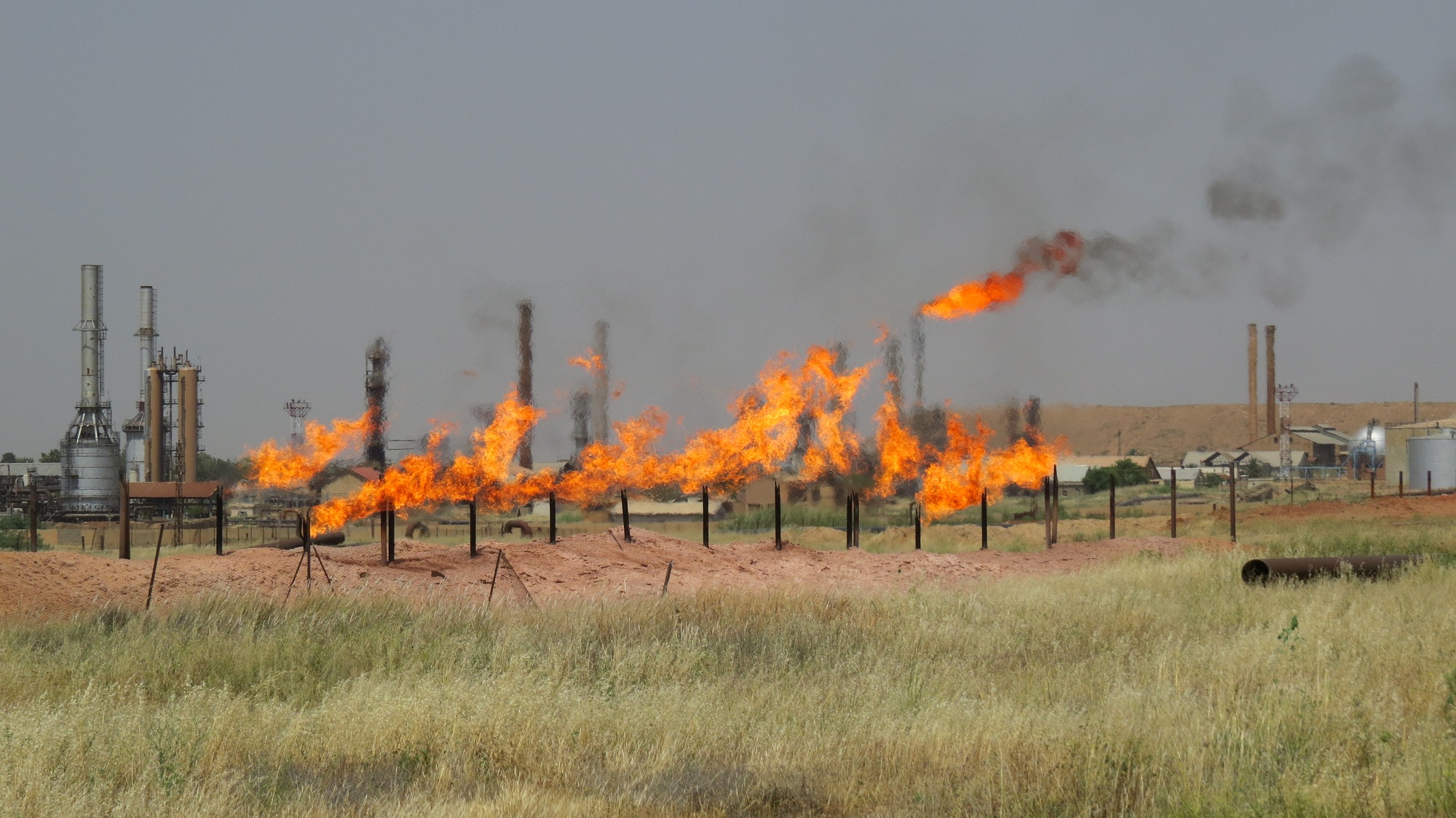Crude oil exports from the Kirkuk fields to Turkey last month hit over 1.7 million barrels only, half of last February exports, while its revenues exceeded $126 million.
According to the statistics of the Iraqi Ministry of Oil and the State Oil Marketing Organization SOMO for March 2023, the total exports of crude oil from all of Iraq's oil fields amounted to 100,913,027 barrels, with revenues estimated at more than 7.4 billion American dollars USD.
The average price per barrel of Iraqi crude oil last month was 73 $/pb.
Iraq’s oil reserves are considered the world's fifth-largest with 140 billion barrels.
The total crude oil exports from the Kirkuk fields to the Turkish port of Ceyhan via pipelines amounted to one 1,727,494 barrels, with revenues exceeding $126 million. However, the ministry's statistics did not indicate the volume of exports from the Kirkuk fields to Jordan via tankers during the month of March.
SOMO did not put forward further details about the reason for the decline in the exports.
Kirkuk has exported over three million barrels of crude oil last February, generating over 235 million American Dollars USD, statement by Iraqi oil ministry.
Kirkuk oil exports to the Turkish port of Ceyhan via pipelines during February passed 2.834 million barrels, with revenues exceeding $215 million, according to international oil prices.
Kirkuk oil exports to Jordan by tanker reached more than 280,000 barrels this month, earning about $20 million.
The Iraqi federal government and the Kurdistan Regional Government (KRG) are close to striking a deal aimed at resuming northern oil exports, Reuters said on Saturday.
An initial agreement between the two sides states that Iraq's northern oil exports will be jointly exported by Iraq's SOMO and the KRG's ministry of natural resources (MNR), two sources – a senior Iraqi oil official and a KRG official- told Reuters.
Turkey stopped pipeline flows from the Kirkuk fields and the semi-autonomous Kurdistan region to its port of Ceyhan on March 25, after it lost an arbitration case brought by Baghdad.
Iraq accused Turkey of violating 1973 agreement by allowing the KRG to export oil without Baghdad's consent between 2014 and 2018. The KRG pumps around 450,000 barrels per day (bpd) only accounted for about 0.5% of global oil supply.
Exports to Turkey during January amounted to 2.5 million barrels, with revenues exceeding $180 million, while it has exported the same quantity in January 2022 for over $200 million.
Crude oil exports from the Kirkuk fields through pipelines and tanks during the last year exceeded 29.5 million barrels, with revenues exceeding $2.8 billion.
There are five main crude oil producing fields in Kirkuk province; Avana, Bay Hassan, Baba Dome, Jambur and Khabaza, under the control of the Iraqi Government’s North Oil Company.
Kirkuk, Iraq’s second largest reserves, located 238 kilometers north of Baghdad, is an ethnically mixed province for 1,7 million Arabs, Kurds and Turkmens. It has long been at the center of disputed territories between Baghdad and the Erbil.





